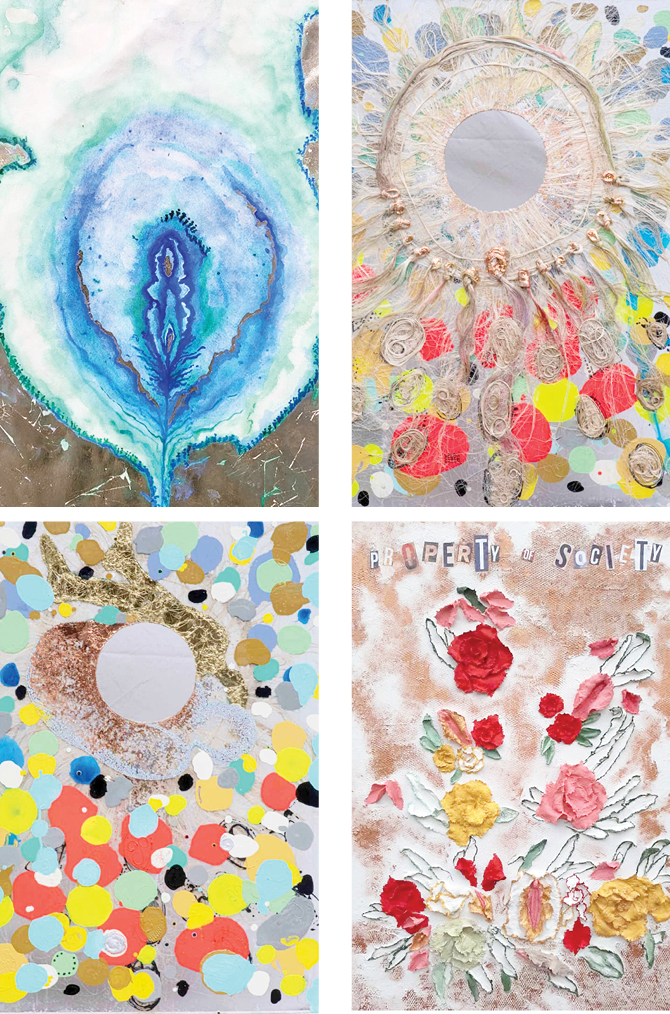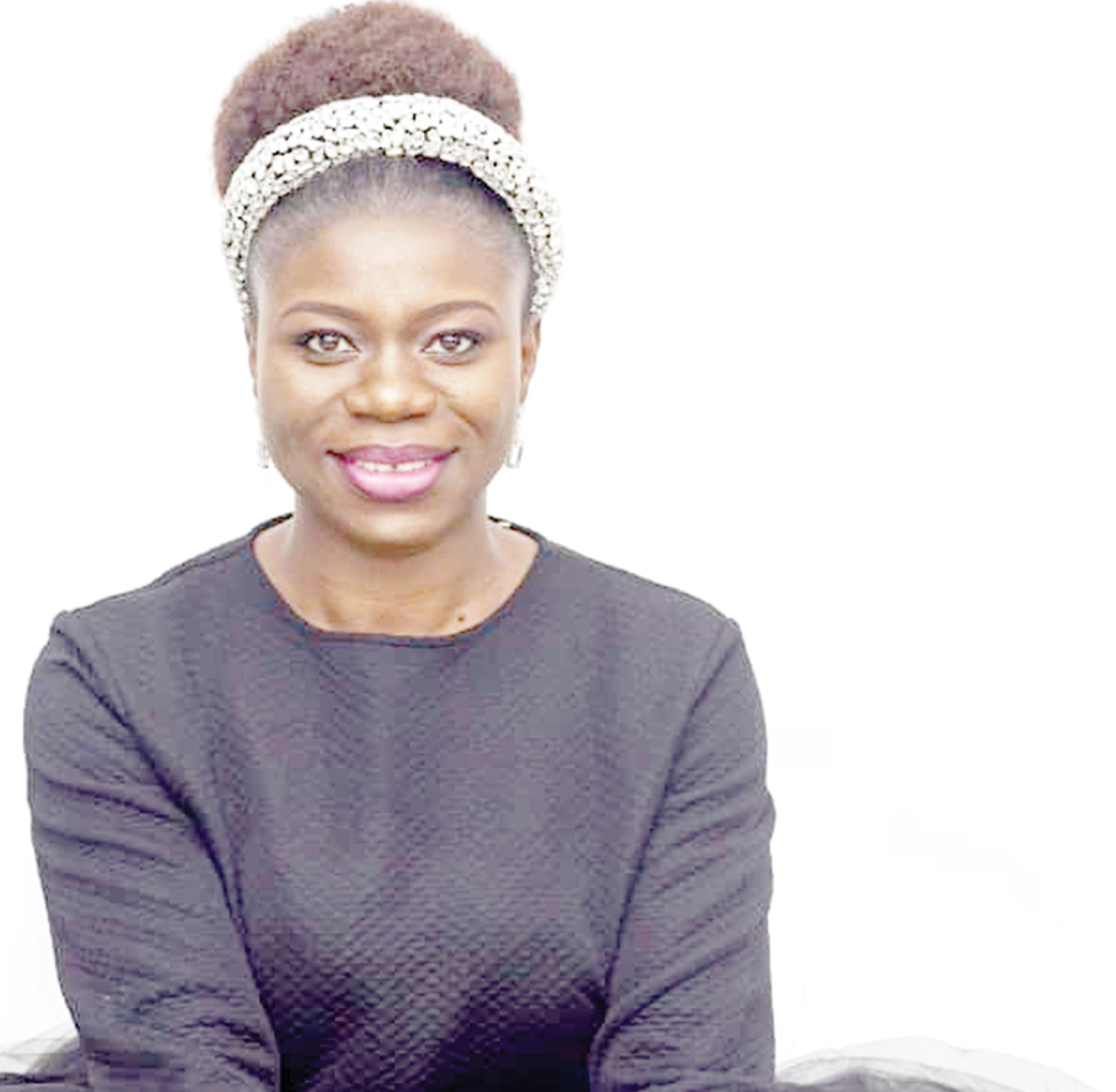Helen Ogochukwu Nzete is a multidisciplinary artist who sees her art as a voice for societal issues that need to be given more attention. In this interview with Daily Trust on Sunday, Nzete speaks on her experiences and progression as an artist.
Briefly, tell us about your background?
My name is Helen Nzete and I am from Delta State. I was born in Lagos on the 18th of September 1986. I studied and graduated a sculptor from the Ahmadu Bello University Zaria, Kaduna State. I’m an award-winning artist known for my signature portrait mixed media paintings which meshes elements of nature, emotions and some form of rebellion to symbolize change and the power of expression in any form. Constantly, I’m always exploring new techniques, places and materials in my paintings, inviting viewers to confront societal, family and political issues they would rather not.
Do you think being an artist can be learned or it comes naturally?
You definitely cannot learn art; it has to be innate. Sure, you can learn the principles of it but if that talent and want for expression is not there, then you cannot learn it.
As an artist, how do you handle new/fresh projects and come up with new ideas?
For fresh projects, I would first take time off to clear my head so I can have a better view of how to tackle them and come up with the best results. With creating new ideas, I mostly deal with grassroots and social issues and as long as we live in a world with so many social injustices, then I will always have something to advocate for through my artworks. There are just too many things to talk about.
Are you comfortable working on your own or do you prefer to work in a team?
I work better on my own mostly because as a creative, I need a fresh ambience for maximum clarity. I do not like those distracting sounds and interference with my space. Maybe that is why I work better at the dead of night. I could, however, work with a team, especially when on a project, I would just do a lot of zoning.

Can you share a real-life situation that inspired you or any of your works?
Even though a large percentage of my works are inspired by either mine or other people’s life situations, I would like to talk about ‘Dubem’.
I am currently developing a body of works “the year of knots” and the first of it is titled ‘Dubem’, about an autistic boy who was punished by his dad for peeping at his sister while she changed. The father put pepper in both eyes. I was devastated about this and knew it was time to address traumatic experiences in childhood and how they affect our choices in life as adults.
As an artist, what role do you think your art plays in society?
My art is definitely a tool for activism and advocacy. Helping to amplify the voices of those less privileged around me and even far away.
What do you enjoy most about your profession?
Getting to see how my audience interact, interprets and connect with my pieces. The feeling is priceless and I won’t trade it for anything.
Have you ever had a bad critic of your work and what was your reaction?
During my first solo exhibition “Perceptions” at Bouygues club house in 2019, someone approached me and told me my works had no soul and she just could not connect with them, that kind of threw me off because it was my first outing alone and I did not know how my audience would interpret what was presented to them but I gave a smile and said “thank you for pointing that out” because it was the reason I was there. I would not be better if all I got were praises—I wanted to be better. It was a sold-out show by the way because all the collectors from that show connected one way or another on so many deep levels. This made me curious to know why the lady said what she has said to me but I could not find her when the exhibition closed.
What will you consider essential to an artist’s work?
The understanding that your art is not just for and about you. Art expressions are meant to be expressed and for a reason and should never be hidden even if your audience is a size of five.
When working on multiple projects, how do you share your time?
I always just go with the flow, and strive to have the best outcome in good time.
Overtime, what changes or growth have you noticed in your work?
My works are the reality of my thoughts and my thought process keeps evolving, in each era, the philosophy becomes richer in understanding because of added knowledge and understanding of my society and self, which makes it easier to translate to canvas. So, I see a lot of depth in my works.
What’s the longest you’ve spent on an artwork?
Currently, about seven months on one of my works and still not done.
Which is more important to you, the process or the result?
Definitely the process, the value is in the experience of creating the artwork and exploring materials and techniques. The process also helps you understand the topic and can create that connection we need to our pieces.
What challenges do you encounter in your work?
I work with multiple mediums on a piece so it is hard to see the end from the beginning which is very challenging because sometimes it drains my creative thought process. As an artist, self-doubt is one of the biggest challenges to face too, often I wonder if the work is good enough or will be accepted. To overcome this, I would just take some time away and when I come back just do what I had initially set out to do. In time, the work will “reveal” itself to me.
Will you say Nigeria has a strong network of artists that can help young creatives?
Definitely, when we have the likes of Mama Nike, Peju Alatise, Victor Ehikhamenor, Prof. Jerry Buhari and more. They all mentor, in one form or another, the younger artists like myself.
Describe the perfect working environment
A clean space, silence and African music especially the Senegalese music. It’s very soothing to work with.
As a multidisciplinary artist, which of your styles are you most comfortable with?
My style is to express myself in the style I feel most comfortable with, which is mostly mixed media.
If you could go back in time, is there anything you’d like to add or change?
No. Everything is good the way it is.

 Join Daily Trust WhatsApp Community For Quick Access To News and Happenings Around You.
Join Daily Trust WhatsApp Community For Quick Access To News and Happenings Around You.

